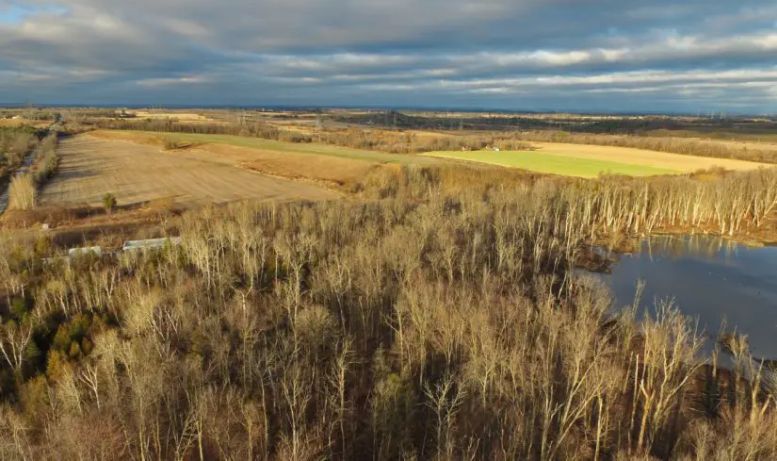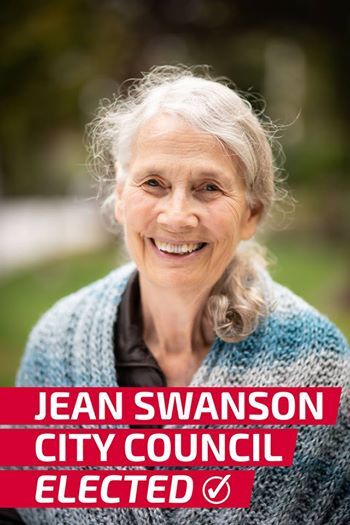Under immense pressure, Doug Ford has backed down on his proposal to take land out of the Greenbelt. While this is a victory for Ontarians, the long saga has put Ford’s government in jeopardy.
Three Down, Ford Should be Next
The Greenbelt scandal has claimed four high profile members of Ford’s government, including two cabinet ministers and two senior civil servants. Another minister has also resigned although he said it was unrelated.
First to go was Ryan Amato, the Housing Minister’s chief of staff. The report of Bonnie Lysyk, the Auditor General, released on August 9, found the government’s process for choosing which sites to remove from the Greenbelt was influenced by a small number of well-connected real estate developers with access to Amato. The vast 810,000-hectare area of farmland, forest and wetland stretching from Niagara Falls to Peterborough is meant to be off limits to development. The Ford government ignored this and instead gave the nod to developers to make a killing.
Amato Resigns
Lysyk’s report said that Amato had selected 14 of the 15 sites that were ultimately removed from the Greenbelt and that the majority were chosen after suggestions from developers who lobbied him personally through encounters at industry events — Amato had been given packages at one such event containing requests to remove land from the Greenbelt by developers. This was reinforced by emails sent by their lawyers. Lysyk wrote that “The process was biased in favour of certain developers and landowners who had timely access to the housing minister’s chief of staff.” The owners of the 15 land sites chosen through the process overseen by Amato could see more than an $8.3 billion increase in the value of their properties, Lysyk’s report found.
Ford and Housing Minister Steve Clark maintained that neither knew what Amato was doing, despite Ford having told Clark to “complete work to codify processes for swaps, expansions, contractions and policy updates for the Greenbelt” by the fall of 2022. The latter was contained in Clark’s post-election mandate letter. “I don’t believe in micromanaging,” Ford said when asked to explain how he was out of the loop. “I believe in delegating, delegating work through our ministers and their teams.” Yet Ford knew enough to claim that “no one had preferential treatment” when it came to choosing what Greenbelt land would be open for development. Amato eventually resigned a full two weeks after the publication of the Auditor General’s report.
Inadequate Consultation with First Nations
First Nations leaders from across Ontario demanded the provincial government return environmental protections to land it recently took from the Greenbelt. The Chiefs of Ontario, an organization that advocates for 133 First Nations in the province, unanimously passed a resolution at an emergency meeting opposing the so-called Greenbelt land swap. Ontario Regional Chief Glen Hare said First Nations weren’t adequately consulted on the Greenbelt changes, despite the changes directly affecting their treaty and constitutionally protected rights. Rights under those treaties include rights in certain areas to hunt, fish, trap and gather. Removing land from the Greenbelt would directly interfere with those rights.
The Greenbelt removals would have damaged water systems and wetlands that supply groundwater, reduce flood risks and improve climate resilience. Recent wildfires and severe flooding events serve as a warning that wetlands need to be protected. Wetland complexes are extremely significant for First Nations as they are considered medicine chests for harvesting. “Certain medicinal plants only grow within these wetlands and removing them from the Greenbelt will remove access to dozens of medicines that First Nations have the right to harvest,” said Chief Taynar Simpson of the Alderville First Nation.
Clark Resigns
On August 30, another damning report on the issue came from the Office of the Integrity Commissioner of Ontario, an organization that claims to be independent of government and “works to reconcile private interests and public duties to encourage a culture of integrity among Ontario’s elected officials and public servants.” The Commissioner, J David Wake, found that the way the government went about removing 7,400 acres from the Greenbelt was “marked by misinterpretation, unnecessary hastiness and deception.” He also found that Minister Clark broke ethics rules for his role in the government’s Greenbelt land swap. He found that “Amato advised Clark to ‘leave it with me’ as he embarked on a chaotic and almost reckless process that I find led to an uninformed and opaque decision that resulted in the creation of an opportunity to further the private interests of some developers improperly.” Wake criticized Clark for withdrawing from the supervision and direction of the “highly significant initiative within his ministry,” for having his head in the sand and, essentially, for allowing free rein to Amato.
After the publication of Wake’s report, the calls for Clark’s resignation became loud and strong. However, Ford was thinking differently, saying that Clark would keep his job without any hint of a sanction. Ford said that Clark “has a tough job.” Clark, in a separate news conference, apologized for his role in the Greenbelt controversy. Despite Ford’s public support, Clark eventually gave into the accumulated pressure, resigning on September 4. In his resignation statement, he accepted responsibility, and pledged to do better going forward. He said that the job “demands someone who is not a distraction from the important work that needs to be done.”
Ford’s take
Doug Ford had an interesting exchange with Global News reporter, Colin D’Mello at a press conference. D’Mello asked him a question on the integrity commissioner’s report. Ford opened his reply with “You have a home. Do you know how many people don’t have a home, Colin? There’s hundreds of thousands of people that don’t have homes. You have a nice home down the street.” The message from Ford was a weird kind of “check your privilege” — if you already own a home, how dare you question a program whose intention is to acquire land to build 50,000 new homes. It was also saying that the end justifies the means — we might have used dodgy methods and we might have let some dubious profiteers into the game but, look, houses are going to get built. How can anybody complain? Easy, especially when the end itself doesn’t make sense.
In February 2022, The Housing Affordability Task Force, a body appointed by the Ford government, reported that: “A shortage of land isn’t the cause of the problem. Land is available, both inside the existing built-up areas and on undeveloped land outside greenbelts. We need to make better use of land.”
Ford Doubles Down
You would have thought that after two damning inquiries and two resignations of government officials, Doug Ford would be quietly licking his wounds. Not so … or at least not yet. The auditor general’s report made fifteen recommendations on how to improve the process and accountability for managing the Greenbelt. Ford accepted fourteen of these recommendations, but he dug in on the last one which would have meant revisiting the land swaps and possibly reversing those decisions. The day after the Clark resignation, Ford announced a broad review of the Greenbelt.
NDP leader Marit Stiles response to this was: “I’m concerned (about Ford) going to look at other developers’ plans and reopen other opportunities in the Greenbelt, which is exactly the wrong direction to be taking things.” Green Party Leader Mike Schreiner accused Ford of declaring “open season on the Greenbelt.”
Three More Resignations
Further resignations were to come. It turned out that Public and Business Service Delivery Minister Kaleed Rasheed had gone to Las Vegas and was “surprised” to find a developer friend, Shakir Rehmatullah from Toronto in the same hotel lobby. Jae Truesdell, Ford’s director of housing policy, was also on the trip. Rasheed told Wake he had been close friends with Shakir Rehmatullah for many years. The integrity commissioner interviewed Rasheed about apparent inconsistencies with the dates of the Las Vegas trip and his connections to the developer. Rehmatullah’s company owns land that was among the parcels removed from the Greenbelt in November 2022. He is the founder and president of Markham-based Flato Developments, which was behind three successful requests to remove land from the Greenbelt in Markham and Whitchurch-Stouffville last fall. Rasheed and Truesdell weren’t directly accused in the commissioner’s report although he suggested that Rehmatullah had been tipped off. We can suppose that they were beginning to feel the heat, which explains their resignations.
On September 22 the Minister of Labour, Monte McNaughton, announced his resignation from the cabinet and the legislature. Referring obliquely to the swirling scandal, he said “my decision is completely unrelated to those events.” Three cabinet members and two senior members of the government’s staff gone in three weeks.
Ford: “I’m sorry, I made a mistake.” Voter: “You’ll Pay for It.”
The next instalment, probably not the last, in this sorry saga came on Thursday, September 21. The Toronto Star reported it as follows: “Premier Doug Ford is scrapping his controversial Greenbelt land swap in a desperate bid to salvage his sputtering Progressive Conservative government.”
An opinion poll from Abacus completed just before news of Housing Minister Steve Clark’s resignation found that support for the PCs had dropped 4 points in just over a week from 38 percent to 34 percent and by 7 points since the end of July (41 percent to 34 percent). “That’s a sharp drop that rarely happens over such a short period of time,” said Abacus president David Coletto. The Liberals are up 3 points to 28 percent while the NDP is up 2 points to 26 percent. This climb down by Ford would not have happened had it not been for extensive popular resistance across Ontario. Following the two official reports, a survey found that Doug Ford’s Greenbelt plans made 69 percent of Ontarians angry.
Over the summer months, there were rallies and protests outside the offices of Conservative MPPs, reinforcing the message that the Ford government was on the ropes. Admittedly, the protests were mainly to be found in the suburbs, rural areas and farm country. But passive support from the urban areas was also important. The protests and public opinion had finally convinced Ford that his government was sinking fast. Putting on his best sincere face, he apologized and promised to do better.
It should be remembered that, last October, Ford was also in a tough situation when he tried to circumvent collective bargaining for CUPE education workers by invoking the notwithstanding clause in the Constitution in order to stop CUPE from striking. Ford was forced to back down on this when other unions threatened to join CUPE in an Ontario-wide general strike.
The lessons to be drawn from both these issues is that resistance is not futile, but fertile.
What Next?
The issue has been put in the hands of the RCMP out of concern over a perceived conflict of interest and possible criminal wrongdoing. They have said they will evaluate the information and assess whether to launch an investigation. While we have no faith in the RCMP to investigate this, or any other, issue impartially, we would have no qualms in accepting a finding of criminal misconduct against, for example, Doug Ford. But let’s not hold our breath. The task for Ontario labour, the environmental movement and the left is to build on the resistance generated by the movement to save the Greenbelt and to link it to other struggles such as Indigenous, labour and tenants. Coordinated, fertile resistance is more likely to bring about the downfall of Doug Ford than anything in the armoury of the capitalist state.




